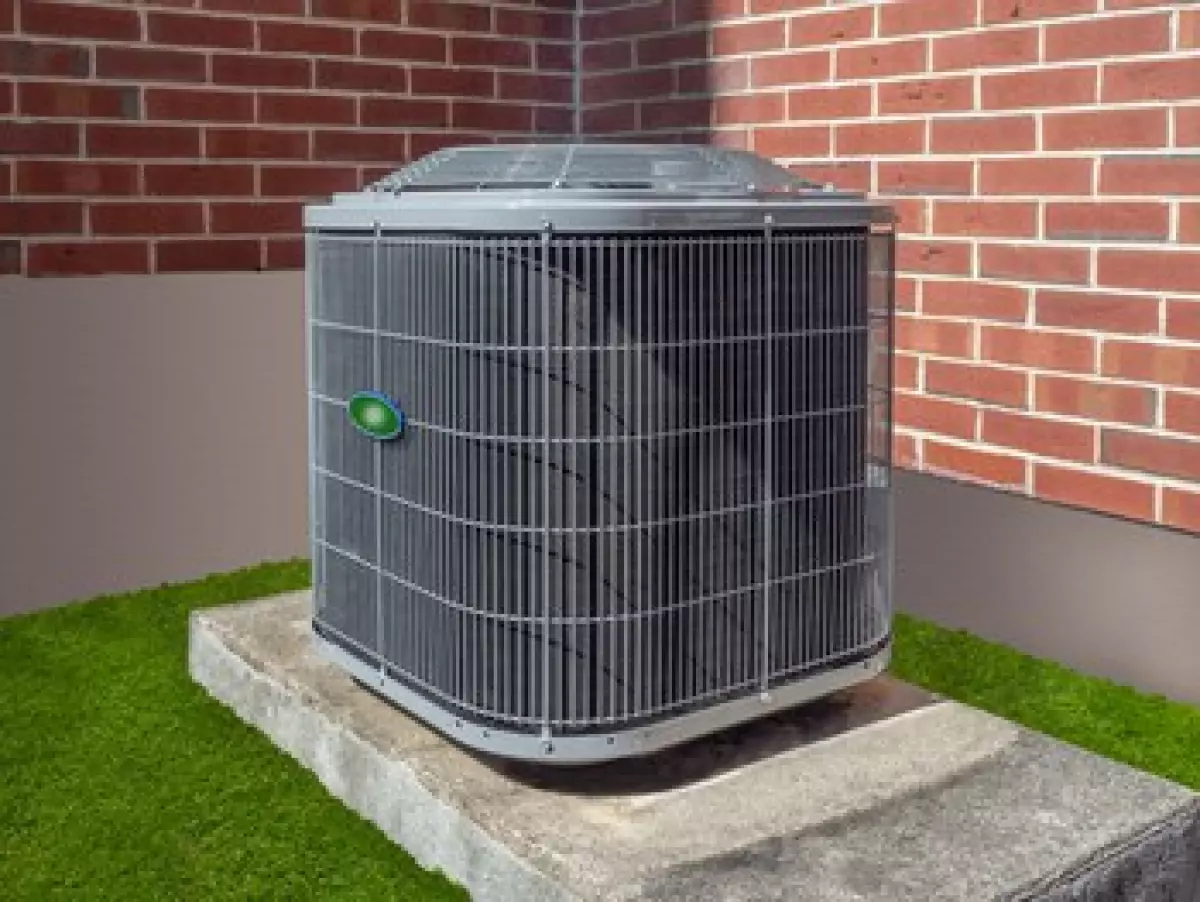 Image source: saigonintela.vn
Image source: saigonintela.vn
Are you considering installing a central air conditioner but unsure about the costs involved? Look no further, as we break down the essential information you need to know. From the average cost of a central AC unit to installation expenses and additional factors to consider, we've got you covered.
How Much Does it Cost to Install a Central Air Conditioning Unit?
Installing a central air conditioner typically costs between $3,500 and $5,950. The final price will vary depending on factors such as the unit's size, SEER rating, ductwork requirements, and any necessary repairs. It's important to consider all these factors when making a decision, as the benefits of a new central AC unit quickly outweigh the installation costs.
Central Air Conditioner Prices
Central air conditioner prices range from $750 to $4,700, depending on the unit's size and features. To determine the best option for your home, it's recommended to consult with a contractor who can evaluate your specific needs and provide a suitable recommendation.
Central Air Conditioner Price By Size
- 2 Ton: Up to 1,000 Sq. Ft. - $3,350
- 3 Ton: Up to 1,600 Sq. Ft. - $4,600
- 4 Ton: Up to 1,900 Sq. Ft. - $4,900
- 5 Ton: More than 2,000 Sq. Ft. - $5,900
Air conditioners are rated by ton or BTU, which indicates their cooling power. The ton designation is derived from a time when people purchased ice by the ton to cool their homes. Each ton is equivalent to 12,000 BTU (British Thermal Units).
Central Air Conditioner Price by Brand
Air conditioners come in various sizes and price ranges, catering to different budgets and needs. Some popular brands to consider are:
- Trane: $2,300
- Lennox: $2,250
- Carrier: $2,200
- Frigidaire: $2,100
- York: $2,250
- Amana: $2,000
- Rheem: $1,850
- Armstrong: $1,800
- Whirlpool: $1,750
- Tempstar: $1,700
It's worth noting that some contractors work exclusively with certain manufacturers, while others install any brand of AC unit.
Cost to Install Central Air Conditioning
Installing central air conditioning is a comprehensive cooling option that requires careful consideration. While replacing an existing AC unit is relatively simple, retrofitting a home with the necessary ductwork for a new central air conditioner can be complex and costly. It's best to obtain a professional quote to accurately assess the installation expenses.
Cost to Replace an Existing Air Conditioner
The average cost to replace an existing mid-sized central air conditioning system is around $4,400. Both the AC unit and labor contribute roughly 50% to the overall price.
Cost to Add Central Air to Existing Forced Air Furnace
If your home already has forced hot air heating systems, adding a new central air conditioning system is easier and less expensive. Utilizing the existing ductwork, the cost of installing a new AC unit typically ranges from $3,200 to $5,500, depending on the chosen model and any necessary site upgrades.
Cost to Install Central Air Conditioning with No Existing Ductwork
For older homes with convection or baseboard heat, installing central air conditioning requires the addition of ductwork. Adding flexible, insulated ducting to a 1,200-square-foot home can increase the installation cost by $1,800 to $3,100.
Additional Cost Factors to Install New Central Air Conditioning
To ensure an efficient and well-functioning system, some additional factors to consider include:
Unit Pads
A new air conditioner requires an even and well-ventilated surface to sit on. The addition of a suitable concrete or crushed gravel pad can cost $200 to $400, depending on the specifications. This cost may be itemized separately or included in the overall hourly rate.
Electrical Upgrades
Most central air conditioners require a dedicated 240V 20A circuit. Adding this electrical upgrade to your home can add an average of $90 to the installation cost.
Duct Upgrades
Older and poorly insulated ductwork can reduce the efficiency of a new air conditioner, especially if it's located in the attic. Recommended duct upgrades can cost up to $3,000, including the labor required for removing old ductwork. While this investment may seem significant, it will pay off in energy savings over time.
Insulation
Installing a new central air conditioner provides an excellent opportunity to add insulation to your home. Having adequate insulation lowers both heating and cooling costs. The cost of adding insulation typically ranges from $600 to $1,500, depending on the specific requirements.
Permits and Fees
Adding a central air conditioner generally requires a permit and a safety inspection to ensure compliance with building codes. Permit fees can range from $25 to $125. Additionally, disposing of an old air conditioner and ductwork can incur costs ranging from $40 to $110.
Choosing the Right Central Air Conditioner
Choosing the right central air conditioner is crucial for optimal comfort and efficiency. It's essential to select a unit with the appropriate size and features for your home.
Size is determined by factors such as square footage, climate, and insulation. As a general guideline, a ton of cooling power is recommended for every 500-600 square feet of the home, with adjustments made for climate and insulation levels. Consulting with an HVAC professional is the best way to ensure you choose the right-sized air conditioner for your specific needs.
Air conditioner efficiency is another vital consideration. Look for models with high Energy Efficiency Ratio (EER) and Seasonal Energy Efficiency Ratio (SEER) ratings. These ratings indicate the unit's cooling capabilities and energy consumption under various conditions. Single-stage, two-stage, and variable-speed air conditioners offer different levels of efficiency and operational flexibility, each with their own advantages.
Are Super High-Efficiency Air Conditioners Worth the Price?
Super high-energy air conditioners utilize the latest technology to deliver energy savings. However, these units tend to come with a higher price tag of up to 40% more than standard models. While the long-term energy savings can be substantial, the return on investment may not justify the additional cost over the expected lifespan of the air conditioner.
Alternatives to Central Air Conditioners
If central air conditioning is not feasible for your home, several alternatives can provide cooling solutions:
- Ductless Mini Split Air Conditioners: These systems consist of an outdoor condenser and an indoor air-handling unit. They offer the flexibility to cool individual rooms without the need for extensive ductwork. Prices range from $850 to $4,100, depending on the model and installation requirements.
- Window Air Conditioners: Designed to fit into standard windows, these units are cost-effective and suitable for cooling single rooms. Prices range from $99 for smaller models to $600 or more for larger units with higher BTU ratings. Installation is typically a DIY job for two people.
- Portable Air Conditioners: These freestanding units can be easily moved from room to room and offer the flexibility to vent through windows or walls. Prices range from $399 to $800, depending on size and features.
FAQs
Is it true that energy-efficient central air conditioners qualify for tax incentives?
Yes! The federal government offers a Residential Energy Efficient Tax Credit, which has been extended through December 31, 2021. Additional credits and rebates may also be available at the state level. To qualify, the AC system must meet certain criteria. Your contractor will provide the necessary documentation for tax purposes.
What kind of air conditioning system is best?
There is no one-size-fits-all answer to this question. The best air conditioning system for your home depends on your specific needs and budget. Factors to consider include your home's size, climate, and layout.
Are central air conditioners worth the price?
Central air conditioners offer comprehensive cooling for your entire home, improving air quality and comfort. While they may require a significant upfront investment, their benefits, including energy savings and increased resale value, often make them worthwhile.
How long does it take to install a central air conditioner?
The timeline for installing a central air conditioner can vary. Replacing an existing unit can typically be completed within a day or two. If ductwork is necessary, it may take 7-10 days to complete the installation.
How long is the average warranty on an air conditioner?
Warranties for window or portable air conditioners typically range from 1 to 3 years. Central air conditioners and ductless mini splits may come with warranties of up to 10 years. Home warranties and extended service contracts may also be available from manufacturers.
How to Hire an HVAC Contractor
Installing a central air conditioning system requires the expertise of a professional contractor. To ensure you choose the right contractor for the job, consider the following tips:
- Ask for referrals from family and friends and read consumer reviews.
- Obtain at least three estimates from contractors with a rating of A or better with the Better Business Bureau.
- Select only state-licensed and insured contractors to avoid personal liability.
- Request local references from the contractor.
- Get written, detailed estimates that allow you to compare services and prices among different contractors.
Final Thoughts
Investing in a new central air conditioner can transform your home into a comfortable oasis while providing energy savings. Take the time to research and consider your options. With the right unit and professional installation, you can enjoy year-round comfort and improved air quality in your home.
External References:
- Energy.gov - Department of Energy: Furnaces and Boilers (Added on July 20, 2015)
- Hud Path homes - US Department of housing and urban development (Added April 16, 2023)
















